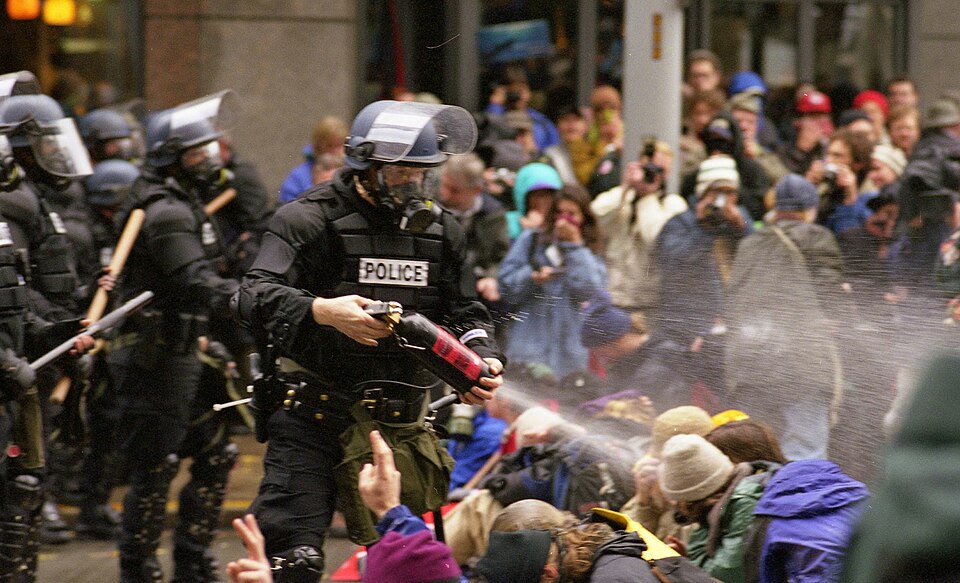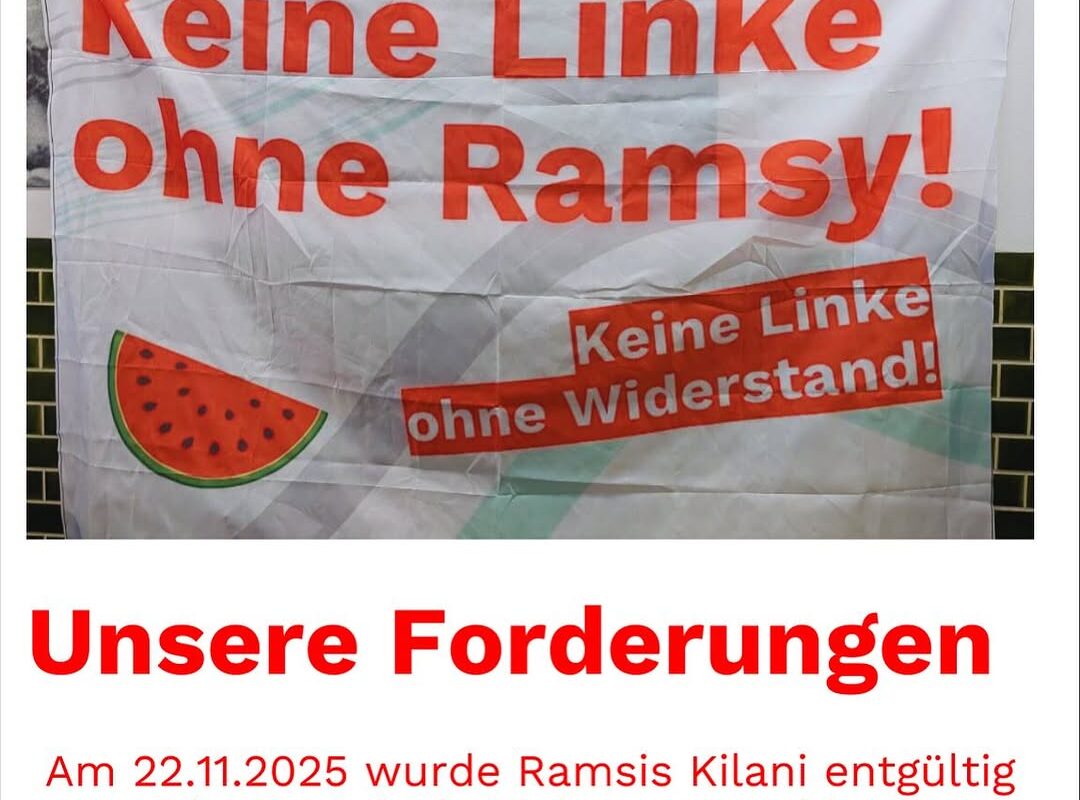Hi, Walid, Thanks for talking to us. Can you first start by introducing yourself?
My name is Walid Abdelnour. I work a bit in videos and films, and I have a part time job to survive. I have just finished making the film Lebanon by Night.
Can you explain quickly what the film is about?
It deals with the curfew that has been imposed on Syrian workers in Lebanon. They put up banners in a lot of villages telling foreign workers that they are not allowed to go out at night. They don’t specifically mention Syrians, but they’re the ones being targeted.
Who are the Syrian workers who are being targeted? Is it because of their political activities?
I think they’re a very diverse group, and they are mostly economic migrants, not political refugees. Some of them could even go back home, if they still had a home. A lot of the ones I’ve met don’t have any strong political opinions. They don’t live in that binary of opposition or pro regime.
If they’re not politically active, why has the Lebanese government imposed a curfew?
It’s not the Lebanese Government. The curfew has been imposed illegally with tacit approval and even encouragement of the Ministry of Interior.
It started happening at a period when there was no Lebanese Government, there was no president, just a caretaker government. Right before, in 2013, there were a lot of explosions in Beirut, especially in the southern suburbs. This was connected to Hezbollah joining the war in Syria.
The state does not actively impose the curfew. There are theories that they would lose funding from the West if they impose it themselves. So they just pretend they don’t know.
They are workers. A lot of them have been working in Lebanon since before the war. We also always had a big portion of Syrian seasonal workers in agriculture.
The curfew is officially against all foreigners, not just Syrians. How does it work in practice?
Signs were put up saying that the curfew was on male workers. Everybody had to register in the municipality that they live in. It was a way to control them.
This became internalised, and slowly they didn’t need the signs anymore. All the workers knew their place in society. They must stay at home and not make any trouble, otherwise they’re kicked out of the village or beaten – it was a way of control and it worked.
People now think it’s not happening anymore, but it’s just that regular, bourgeois, normal people don’t know that this is happening. The people who are concerned know this violence very well.
‘Lebanon by Night’ is not a didactic film: it sits back and shows us what’s happening. What are your intentions here? What do you want people to get out of it?
From a negative sense, it was very important for me that people don’t have strong reactions of: “oh, it’s just racist”. People in the film are of course racist but I also show all the different layers of why and how people deal with these things and that we can all identify with at least some aspects..
A lot of the things they say make a lot of sense; they just come from a wrong premise. But what they feel is legitimate. Maybe my intention would be that I wanted to show all these things and show the logic of things that are so absurd in the end.
People care about security, they care about rights, but then they do these things. And my question is always – which world do I want to live in? This is not a world I would like to live in.
And certainly, at the start of the film, you’re talking to people who are not consciously racist, but they’re maybe xenophobic, maybe nationalist. They’re worried about protecting what they have. Later on, you talk to actual fascists. Firstly, why? And then, how did you get to do this?
The security situation in Lebanon at the time was very sensitive. Let’s say there was a lot of repression. So we were not allowed to film wherever we wanted. And we didn’t have any budget. So we just chose areas around where I grew up.
I know these kinds of people. I didn’t know any of them personally, but I was interested in the first village, where there’s a party called the Syrian Nationalist Social Party. It’s a party that believes in a Syrian Nation, one where Syria, Lebanon, Palestine and maybe Jordan are one country. It’s an ethno-nationalist party. I found it interesting that this place, which believes that Lebanon and Syria should be one country, is still imposing the curfew. So racism in itself was not the most interesting entry point.
The second village is a summer village – a rich suburb of Beirut. There are a lot of rich Syrians there, so it’s different politics. They’re not clearly political; they’re just normal right wing conservatives. There are a lot of rich Syrians who can do what they want, of course, but they project onto the workers stuff that the Syrian army had done when they invaded this village at the beginning of the nineties.
In the last village there are the fascists who are also working class and defending the same system that is crushing them.It all goes back to the idea that if we accept taking basic rights from some people – like the right to walk – then we accept that anything can happen to them. The people in the first villages are nice, and there’s no real physical violence, but they allow the fascists to do what they want, which we somehow accept.
Do you worry that the film might be misinterpreted, and people might say: “the fascists are saying something interesting here”?
I’m more interested in us saying that they do say something interesting, but look at what they’re doing. That’s horrible. I still didn’t get the chance to show the film to many right wing Lebanese people, so I’m interested in how they would see it. I aimed at avoiding them being too triggered by it.
I grew up in a Christian majority area, and I was in a Christian university, where I made a film about the youth who still justify the massacres that were performed by the Christians against the Palestinians. When I made that film, I got so much aggression against me in the university – like my teacher screaming at me. I thought that if I make another film where I criticize Christians, I should be careful that the audience doesn’t immediately get too angry. I wanted to build up a mirror effect, where they actually see themselves for what they are doing.
You’ve said that the film’s not just about race and nationality – it’s also about class. How are rich and poor Syrians in Lebanon treated differently?
There’s no curfew on rich Syrians. In the film, I talk to a policeman, and ask him: “how do you know which cars to stop?”; to which he replies “I just know. By the face I can know”. I then asked about people with cars, and he said: “No, no. It’s not these people.” Of course, they don’t make their lives very easy, but there’s a huge difference in how they are treated. I’m interested in how capitalism uses race and classism to exploit people among other things. I am interested in how there is no idea of solidarity among working class people. I also find it interesting to look at the different mechanisms of control and exploitation.
Do you think the police are under orders, or are they just prejudiced?
I don’t think it’s very clear. In the end, they’re working class people, but they are not conscious about being fucked by the same system. It’s interesting to see all these people who actually internalize this. I don’t know what it is, but they feel that poor Syrians are their enemies, and they feel superior to them.
Who has seen the film so far, and how have they reacted?
It has only been shown twice so far [this interview was made on 10th November]: once in Lebanon, once at the Unframe festival. I am now going to France to show it, and there will be more Lebanese people coming. When it was shown in Lebanon, I got good reactions. I think some Syrians were watching it and felt very angry. But this anger probably comes from having to accept and identify as well as their own experiences.
Most of the audience were more like me. They found some parts funny, some quite sad, and some people who are a bit more conservative were there. I think they just were in denial. They thought “this doesn’t happen anymore”, which is not true.
Who did you make the film for? Is it for people like you, who agree with you? Or are you trying to reach an audience which disagrees with what the film is saying?
Ideally, it’s made for both. I had in mind all the time that the easiest part would be to do something for me and people like me, to focus more on the cinematic language, or the filmmaking. But I also wanted the people in the film to be able to watch it and follow it and relate to it. I wanted to make them think. So somehow, without also giving up on my political thoughts and reasoning, I’m very much hoping that it will be seen by the biggest possible audience, especially more working class people. I also hope that it’s seen by right wing people and that it creates some sort of debate.
If someone in Germany sees it, how would you like them to react?
My hope is that they also know that this is happening in Germany, where there’s no curfew, but the conversations are the same. I showed the first scene at a festival, and there was an Austrian guy who said: “if I go to my village, you listen to people talking about refugees, this is the exact conversations they will have.”
In Germany, there’s a lot of migrant people who live in smaller towns. They tell me how people bump into them and are aggressive with them – even around Berlin, which is also part of a system of control. I know refugees to whom it has happened too. There are people on the border between Poland and Germany, waiting to catch the refugees or to kick them out.
That’s an interesting point. It’s not just a film about Lebanon, it’s a film about refugees and where the world is going at the moment. Are there any other parallels you could draw with developments in Lebanon, and those in Germany and the USA?
I said earlier that if we don’t respect the rights that people fought and died for, if we accept losing them, it will lead to us losing much, much more.
I was having this conversation with a friend the other day, about how Islamists in Germany had their media closed and none of the left cared, not even the Arab left. They said: it’s the Islamists, and they’re not secular like us.
Then it starts happening with the Palestine movement, and the Antideutsche and the white German leftists don’t care. And then it starts happening to them. You can’t pick and choose what is good and pretend that some things don’t affect you.
And then there was the Beirut port explosion. The Army made a curfew on everybody in Beirut. With Covid, there was another curfew. It’s not like these things will not reach Lebanese people.
Something you said reminded me that one of the more conservative people being interviewed said: “we need these curfews to protect our women”. Now I saw the film the same week that Friedrich Merz made a very similar statement, saying that there are areas where migrants live that are not safe to live: “Just ask your daughters”. How much is the curfew used to similarly enforce divisions in society in the name of protecting women’s rights?
It’s a big part. It’s patriarchal – not asking women what they need and portraying them as people who need this kind of protection from men. They’re pretending that they are protecting women in the same way that they say the curfews are there to protect workers.
And who can we count on to protect women and workers?
Depends on what is the real risk we are facing? What does security do or mean? Are we really supposed to be 100% safe all the time? Do we project unsafety sometimes, because what we are told is a threat or not? And what about the security of the Syrian workers who were not allowed to work? They didn’t have anybody to protect them. The Syrian Embassy didn’t care about them. And UNHCR only deals with refugees. Because they are mostly not refugees.
What’s next for you? Have you got more, more films planned?
Not really, at the moment. This film didn’t get any funding. Each time I got a refusal I thought this is not meant to be, or this is not good enough. There were whole years where I didn’t work, and producers told me to talk more about myself while I was talking about other people. All of this was very discouraging. Now that I just managed to finish it, I don’t have that much energy. It was a lot of collective work. A lot of people worked for free. It was not me doing it alone. I would love to have another project, but I’d like to have a team first. I don’t need to carry it – I can also just be helping.
Is there anything we haven’t talked about that you’d like to say?
I hope I didn’t simplify the ideas too much. The film is not me saying something; it’s mainly listening to people, and showing all the layers of the Syrian occupation, and of Lebanon – the internalized racism, the classism, and the way people just absorb the narrative of the state.




